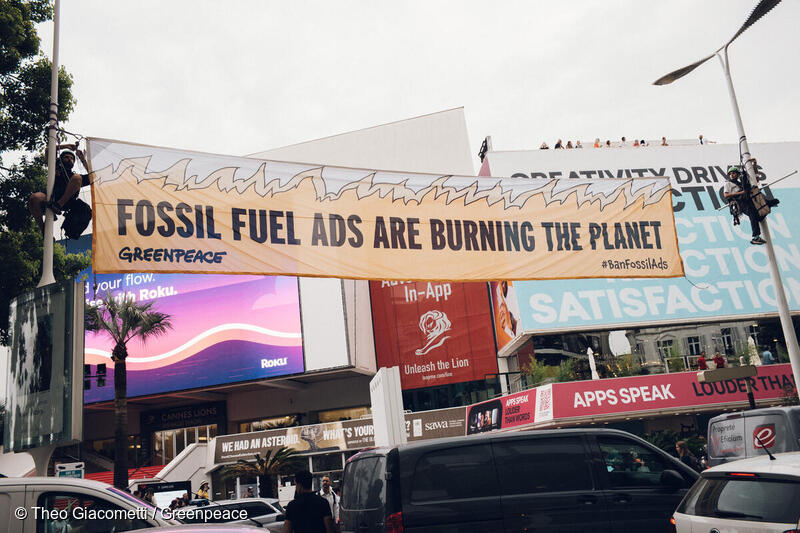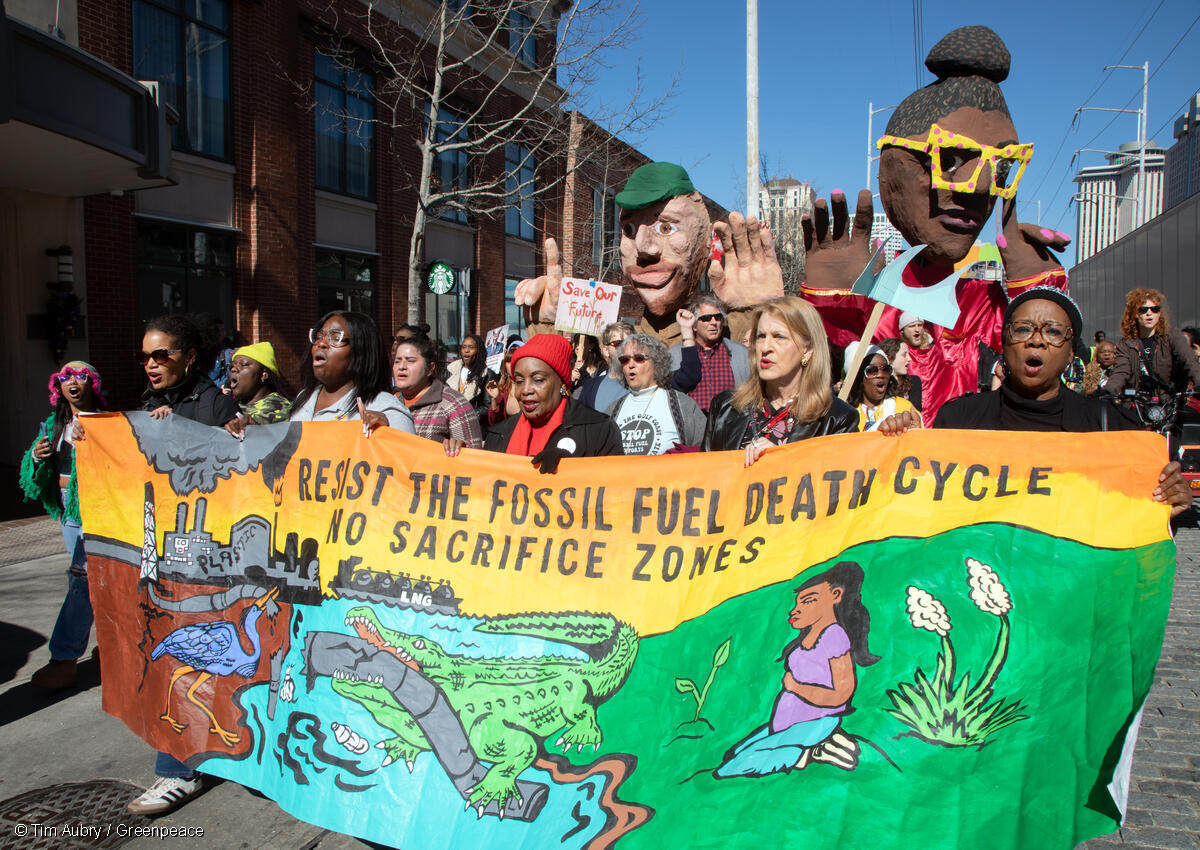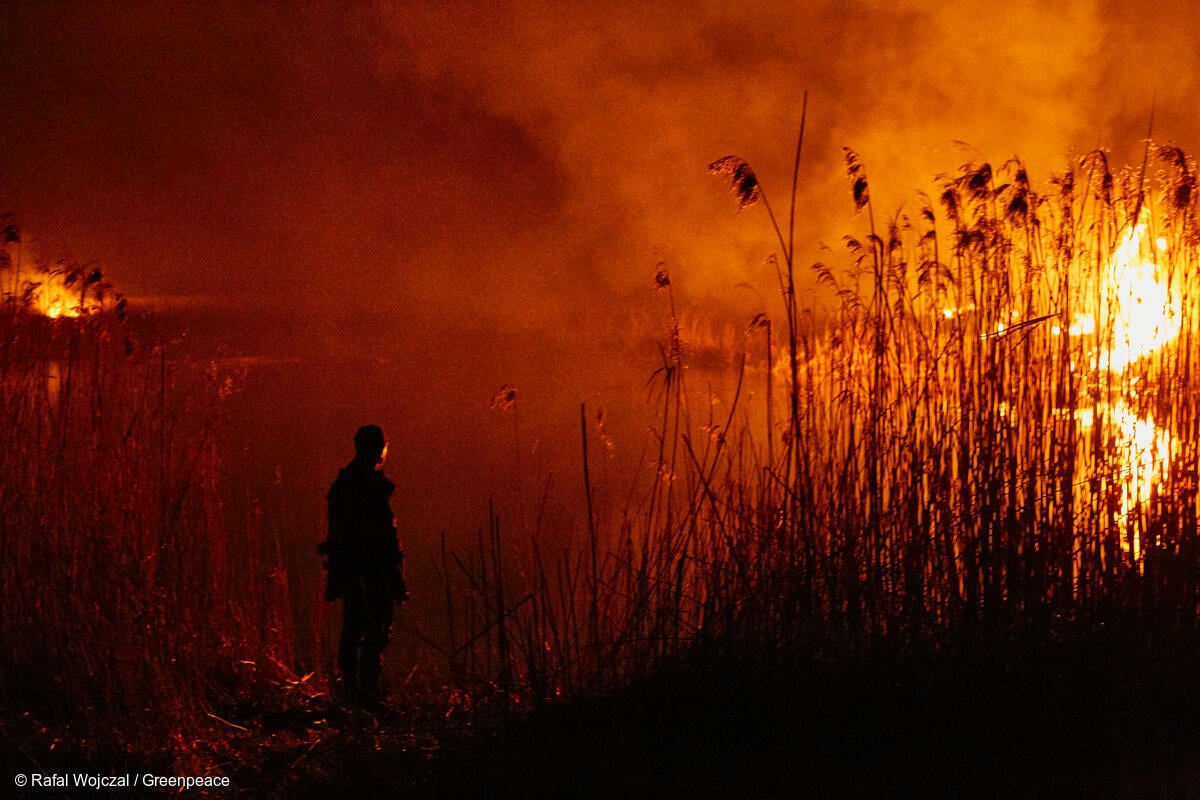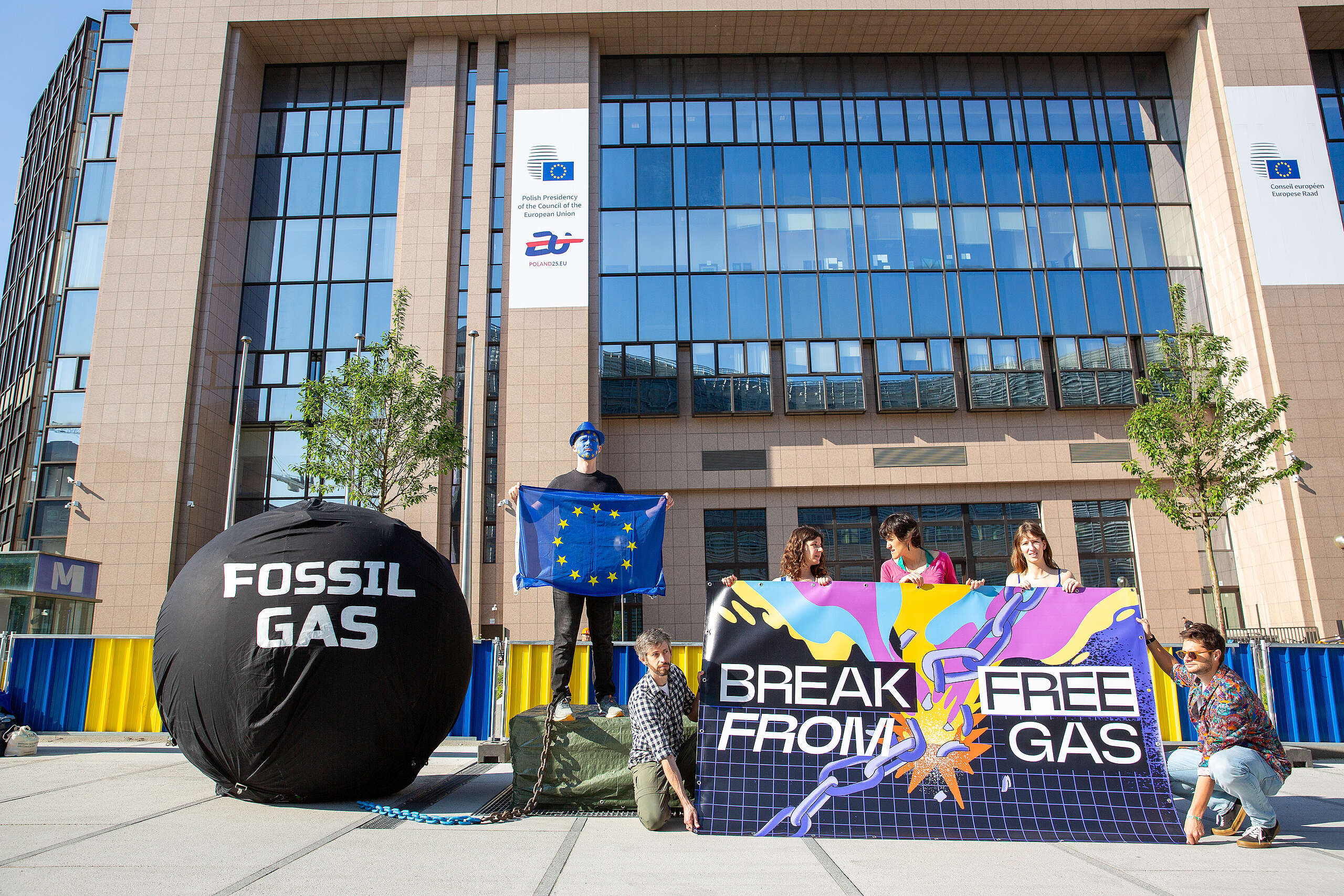
Amsterdam, 21 September 2022 – A new Harvard University investigation commissioned by Greenpeace Netherlands, Three shades of green(washing), has tracked the social media activities of the largest car brands, airlines and oil and gas companies in Europe, revealing the shameless use of greenwashing and tokenism to leverage on the climate crisis.
The report is the most thorough assessment of recent greenwashing by fossil fuel interests on Twitter, Instagram, Facebook, TikTok, and YouTube. Using established social science methods to analyse both the images and text in companies’ posts, Harvard found that:
- Only a negligible handful of posts made explicit reference to climate change, despite Europe’s record-hot summer.
- Two-thirds (67%) of oil, car, and airline companies’ social media posts painted a “green innovation” sheen on their business operations, which the authors identify to represent a variety of types and extents of greenwashing.
- One-in-five oil, car, and airline company posts hijacked sports, fashion, and social causes – collectively termed ‘misdirection’ – to distract attention away from firms’ core business roles and responsibilities.
- Companies variously leveraged imagery of nature, female-presenting, non-binary-presenting non-caucasian-presenting people, youth, experts, sportspeople, and celebrities to strengthen their messages of greenwashing and misdirection.
- Only one in five “green” car ads sold a product, the rest functioned primarily to present the brand as green. Car brands were much more proactive on social media than airlines and oil companies, on average generating twice the output of airlines and quadruple that of oil and gas companies.
The investigation analysed 2,325 posts between 1 June and 31 July 2022 from 375 accounts on five platforms from the 12 largest car brands, 5 largest airlines and 5 largest fossil fuel companies and was conducted by Harvard researcher Dr. Geoffrey Supran and computer scientists at the Algorithmic Transparency Institute. It was led by Geoffrey Supran, whose publications include the first ever peer-reviewed analysis of ExxonMobil’s 40-year history of climate change communications, which demonstrated that the company misled the public about climate science and its implications.
Geoffrey Supran, Research Associate in the Department of the History of Science at Harvard University and lead author of the research, said: “Social media is the new frontier of climate deception and delay. Our results show that, as Europe was experiencing its hottest summer on record, some of the companies most responsible for global heating stayed silent on social media about the climate crisis, opting instead to use language and imagery to strategically position themselves as green, innovative, charitable brands.”
The report confirms social media is the new frontier of climate disinformation and deception, allowing fossil fuel interests to engage in what the researchers call “strategic brand positioning”. This is an evolution of the public affairs tactics employed by the tobacco industry, which successfully blocked regulation of its deadly products for decades.
Silvia Pastorelli, Greenpeace EU climate and energy campaigner, said: “One of the report’s most startling findings is that European oil, auto, and airline industries are subtly yet systematically appropriating the beauty of nature in their social media content to ‘green’ their public image. Car brands, in particular, are much more proactive on social media than airlines and oil companies. This means that carmakers play a much larger role in shaping the public narrative on climate, fossil fuels and energy transition. This pervasive and powerful public affairs technique has been hiding in plain sight, and it demands greater scrutiny. This is a systematic greenwashing effort that calls for a legal ban on all fossil fuel advertising and sponsorship across Europe, just as happened with tobacco.”
Last year, Greenpeace EU and other 40 organisations launched a European Citizens’ Initiative (ECI) petition calling for a new tobacco-like law that bans fossil fuel advertising and sponsorship in the European Union.
Greenpeace senior campaigner Amina Adebisi Odofin, said: “This report also shows that many of these companies distort reality with more online airtime devoted to sports, social issues, and fashion than to their multibillion-dollar fossil-fuelled operations. This clear sports- and woke-washing is boosting the sales of climate wrecking products, as well as fuelling international conflict and human rights abuses across the globe. If we are serious about tackling the climate crisis we need a ban on fossil advertising.”
For the first time this year, the Intergovernmental Panel on Climate Change (IPCC) identified the role of public relations and advertising in fuelling the climate crisis, while hundreds of scientists signed a letter calling on public relations and advertising agencies to stop working with fossil fuel companies and spreading climate disinformation.
NOTES
Methodology: A team of researchers from Harvard University and the Algorithmic Transparency Institute have analysed a total of 2,325 English-language posts published during the summer of 2022 from 375 accounts on 5 platforms: Twitter, Instagram, Facebook, TikTok and Youtube. The accounts studied include the 12 largest car brands and 5 biggest airlines by market capitalization and the 5 fossil fuel companies with greatest cumulative historical greenhouse gas emissions (1965-2018). 145 textual and visual variables were coded as part of a content analysis that employed a statistical test (Fisher’s Exact Test) for associations between all combinations of independent variables.
Contacts:
Sol Gosetti, Media Coordinator Fossil Free Revolution, Greenpeace Netherlands: [email protected], +44 (0) 7807352020
Silvia Pastorelli, Greenpeace EU climate and energy campaigner: [email protected], +32 496 12 20 94
Greenpeace EU press desk: +32 (0)2 274 19 11, [email protected]
For breaking news and comment on EU affairs: www.twitter.com/GreenpeaceEU



